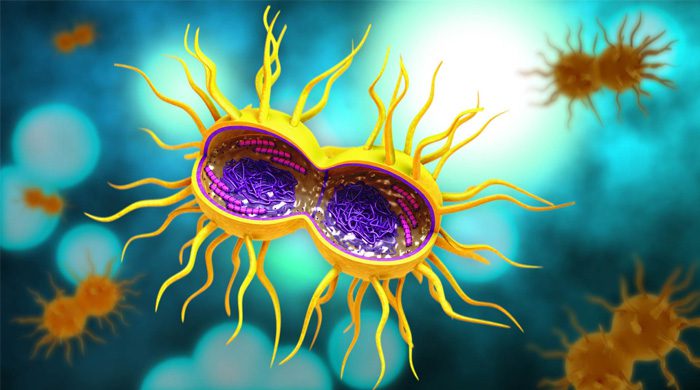Sexually Transmitted Disease (STD) Cases On The Rise

Sexually Transmitted Disease (STD) Cases On The Rise
The CDC reported sexually transmitted disease (STD) cases of chlamydia, gonorrhea, and syphilis have been on the rise.[1] STD cases had been on the decline until 2014. 2015 was the second straight year there were increases in chlamydia, gonorrhea, and syphilis cases.
Chlamydia cases were the highest during 2015 reaching reaching over 1.5 million. The number of cases in 2015 was a 6% increase over the cases reported in 2014. The CDC hasn’t ever reported a higher number for any single STD.
Gonorrhea and syphilis cases also increased from 2014 to 2015. The CDC reported 395,216 gonorrhea cases in 2015, a 13% increase over 2014.
The agency reported 23,872 primary and secondary syphilis cases in 2015, which was a 19% increase over 2014.
It also reported 487 congenital syphilis cases in 2015, a 6% increase since 2014.
At Risk Groups
Young people are at greater risk for STDs.

Young women face the greatest long-term health issues because undiagnosed cases cause infertility in over 20,000 women each year.
Men account for 90% of primary and secondary syphilis cases. The majority of those cases involve men who have sex with men and they make of 82% of primary and secondary syphilis cases.
That leaves heterosexual men making up 8% of the primary and secondary syphilis cases, and women making up
10% of the cases.
The increase in primary and secondary syphilis cases is troubling because it has risen by 19% in 2015 over the previous year.
Primary and secondary syphilis are the most infectious stages of syphilis. Left untreated primary and secondary syphilis can lead to stroke and visual impairment. They are also associated with increased HIV risk. Half of men who have sex with men also have HIV.
STD Treatment
Chlamydia, gonorrhea, and syphilis are bacterial infections. The three STDs don’t present with obvious symptoms in the early stages. It is important for people who are sexually active to test for STDs often.
You can cure these diseases with antibiotics in the early stages, but untreated they can lead to serious health issues.
The consumption of an alkaline plant-based diet, based on the foods on the Dr. Sebi nutritional guide, floods the body with antibacterial agents contained in the plant food.
The alkaline blood produced by the consumption of these foods supports a highly functioning immune system which protects against bacterial infections.
Antibacterial alkaline herbs like chaparral are also very potent agents you can use to treat STD’s.
Learn more about Herbal Medicine »
[1] Reported STDs in the United States 2015 National Data for Chlamydia, Gonorrhea, and Syphilis






